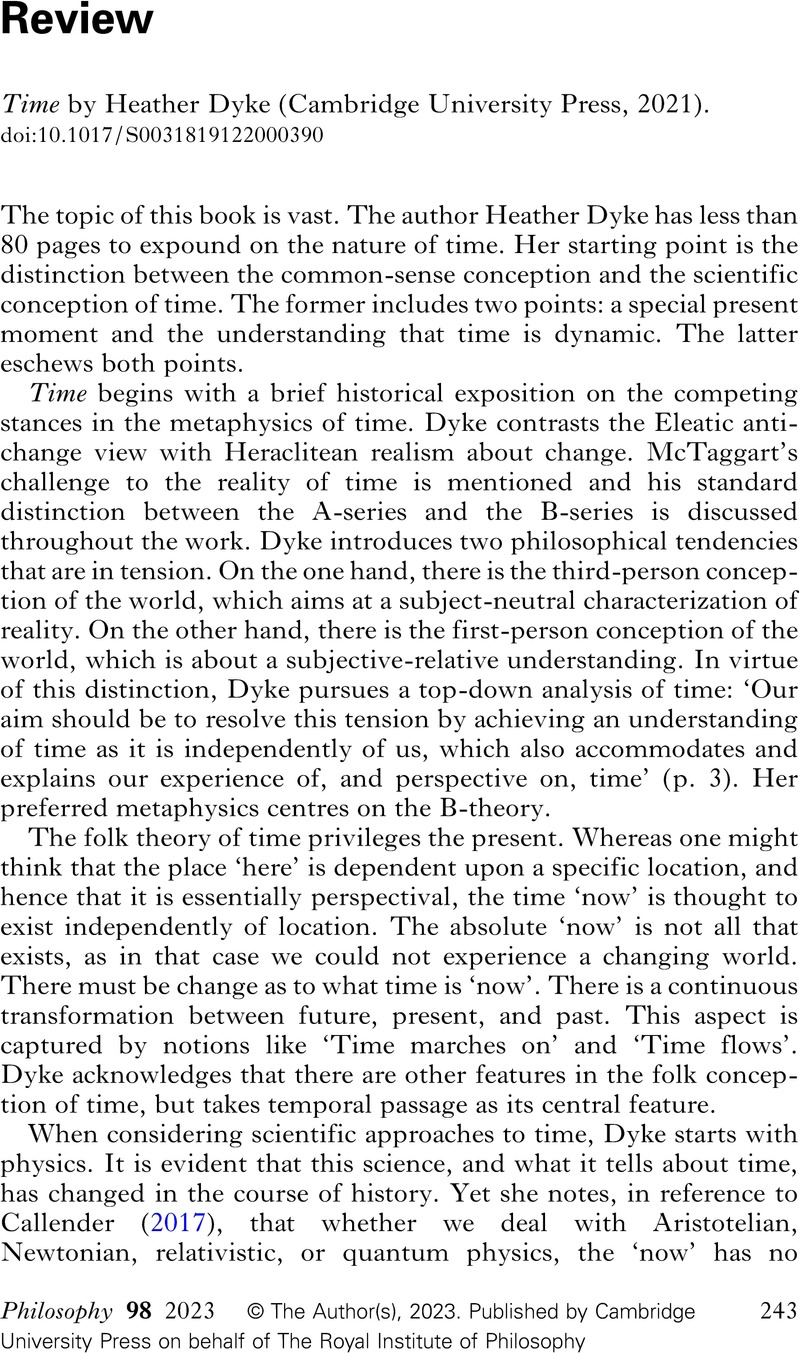No CrossRef data available.
Article contents
Time by Heather Dyke (Cambridge University Press, 2021).
Review products
Time by Heather Dyke (Cambridge University Press, 2021).
Published online by Cambridge University Press: 05 April 2023
Abstract
An abstract is not available for this content so a preview has been provided. Please use the Get access link above for information on how to access this content.

- Type
- Review
- Information
- Copyright
- Copyright © The Author(s), 2023. Published by Cambridge University Press on behalf of The Royal Institute of Philosophy
References
Baron, Sam, Miller, Kristie, Tallant, Jonathan, ‘Temporal Fictionalism for a Timeless World’, Philosophy and Phenomenological Research, 102 (2021), 281–301.CrossRefGoogle Scholar
Callender, C., What Makes Time Special? (Oxford: Oxford University Press, 2017).CrossRefGoogle Scholar
Dyke, H., ‘The Pervasive Paradox of Tense’, Grazer Philosophische Studien, 62 (2001), 103–124.CrossRefGoogle Scholar
Gödel, K., ‘A Remark about the Relationship between Relativity Theory and the Idealistic Philosophy’, in Schilpp, P.A. (ed.), Albert Einstein: Philosopher-Scientist (LaSalle, Illinois: Open Court, 1949), 555–562.Google Scholar
Newman, Andrew, ‘The Rates of the Passing of Time, Presentism, and the Issue of Co-Existence in Special Relativity’, Foundations of Physics, 51:68 (2012), 1–19.Google Scholar
Paul, L.A., ‘Temporal Experience’, The Journal of Philosophy, 107:7 (2010), 333–359.CrossRefGoogle Scholar
Rovelli, Carlo, ‘Time in Quantum Gravity: an Hypothesis’, Physical Review D, 43:2 (1991), 442–456.CrossRefGoogle ScholarPubMed
Sinha, C. and Gärdenfors, P., ‘Time, Space, and Events in Language and Cognition: a Comparative View’, Annals of the New York Academy of Sciences, Issue: Flow of Time, 40 (2014), 1–10.Google Scholar



